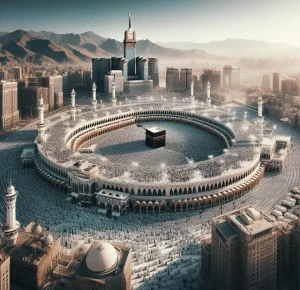In the realm of travel, Islamic Heritage Tourism stands as a vibrant tapestry woven with threads of history, culture, and architectural brilliance. This article delves into the intricacies of Islamic Heritage Tourism, exploring its historical significance, architectural marvels, cultural diversity, preservation efforts, and its impact on local economies.

Historical Significance
Islamic heritage is a testament to a rich and diverse history that spans across continents. From the ancient mosques of Andalusia to the grandeur of the Ottoman Empire, these heritage sites offer a profound glimpse into the shaping of world history. Exploring these locations is like turning the pages of a living history book.
Architectural Marvels
The Islamic world is adorned with architectural wonders, each telling a unique story. The intricate designs of the Alhambra in Spain or the magnificence of the Blue Mosque in Istanbul serve as a testament to the genius of Islamic architecture. Beyond aesthetics, these structures hold cultural significance, providing a deeper understanding of the societies that built them.
Cultural Diversity
Islamic heritage is not a monolithic entity; it’s a mosaic of diverse cultures and traditions. From the calligraphy of Persia to the geometric patterns of North Africa, each region offers a unique experience. Travelers can immerse themselves in the vibrant tapestry of Islamic culture, discovering the beauty of diversity within a shared heritage.
Preservation Efforts
Preserving Islamic heritage is an ongoing challenge, given the impact of time and external factors. Various initiatives, both local and international, are dedicated to safeguarding these treasures. This article explores the significance of preserving these sites for future generations and the importance of sustainable tourism practices.
Impact on Local Economies
Beyond cultural enrichment, Islamic heritage tourism plays a pivotal role in supporting local economies. Tourist influx brings economic opportunities to communities surrounding these sites. It’s a delicate balance between reaping the benefits of tourism and ensuring the preservation of these invaluable assets.
Challenges Faced
While Islamic heritage tourism flourishes, it is not without its challenges. Misconceptions and stereotypes often accompany discussions about Islamic culture. Addressing these issues is crucial for fostering a more nuanced and respectful understanding of Islamic heritage.
Emerging Trends
In the digital age, technology and social media have become influential tools in promoting Islamic heritage tourism. Travel enthusiasts share their experiences, sparking interest and curiosity. Understanding these trends is vital for the sustainable growth of Islamic heritage tourism.
Travel Tips for Islamic Heritage Tourism
For those eager to embark on an Islamic heritage adventure, cultural sensitivity and respect are paramount. This section offers practical tips for tourists, ensuring a meaningful and respectful exploration of Islamic heritage sites.
Case Studies
Highlighting successful examples of Islamic heritage tourism provides valuable insights. Examining both triumphs and challenges offers a comprehensive view of the industry’s dynamics, contributing to better practices and informed decision-making.
Future Prospects
As the world becomes more interconnected, the potential for the growth of Islamic heritage tourism is immense. This section explores the future prospects of this niche tourism sector, shedding light on opportunities for further development.
Islamic Heritage Tourism invites travelers on a journey through time, culture, and architectural brilliance. By understanding its historical significance, addressing challenges, and embracing emerging trends, we contribute to the preservation and celebration of this rich tapestry.
FAQs
- Q: Is Islamic heritage tourism only for individuals of Islamic faith? A: Not at all! Islamic heritage tourism is open to people of all faiths and backgrounds, promoting cultural understanding and appreciation.
- Q: How can tourists contribute to the preservation of Islamic heritage sites? A: Supporting responsible tourism practices, respecting local customs, and contributing to local conservation initiatives are meaningful ways to help.
- Q: Are there specific regions known for their exceptional Islamic heritage sites? A: Yes, regions like the Middle East, North Africa, Spain, and Turkey boast a wealth of exceptional Islamic heritage sites.
- Q: How can technology enhance the Islamic heritage tourism experience? A: Technology can provide virtual tours, educational apps, and online resources, enriching the overall tourism experience.
- Q: What are some upcoming trends in Islamic heritage tourism? A: Expect to see increased emphasis on sustainable tourism, immersive digital experiences, and unique cultural exchanges in the coming years.





More Stories
Wanderlust Wonders: Top Muslim Destinations to Add to Your Travel List
A World of Discovery: How Islamic Tourism Offers Unique Experiences
Halal Hospitality: The Rise of Islamic Tourism and Travel Services